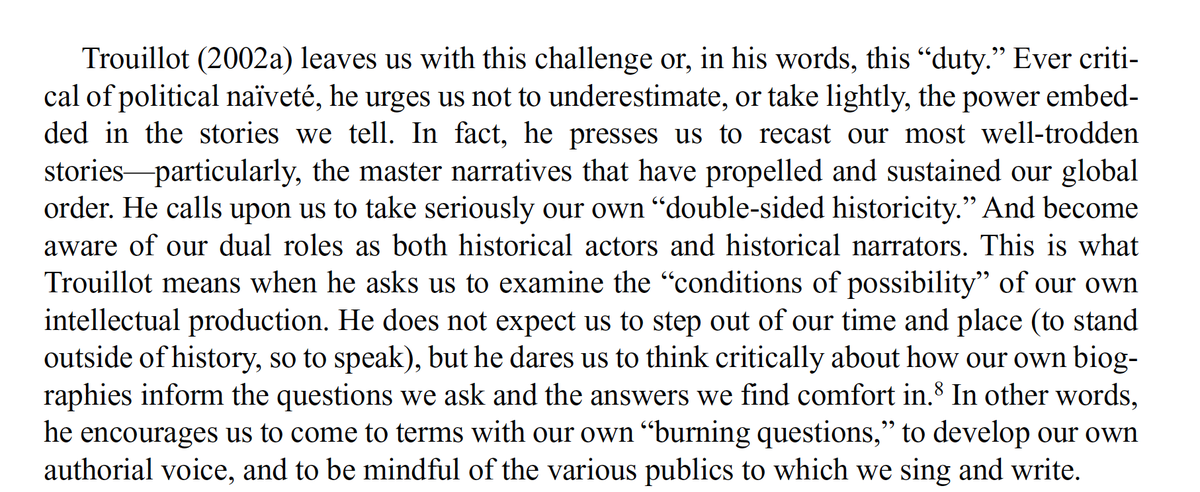I know this is an awkward conversation nobody wants to have, but what are the lessons of #Caliphate for anthropology/ethnography? NYT editors say they failed in part because they "fell in love" with their own story. It resonated with them, it validated their world view. 1/n https://twitter.com/NPR/status/1339988449697345547
We rarely talk about "fact checking" in academia. We rely on peer review, but this often focuses on the strength of the argument and how it builds on previous work -- in some ways this reinforces prevailing world views... and favors work that reinforces our academic biases. 2/n
In fact it is only when work pushes back against existing academic arguments that the validity of the evidence, and whether it actually substantiates the argument, is really brought into question. 3/n
And honestly the only colleagues who I have seen face serious push back on their evidence are junior colleagues working on issues of race-- their argument and forms of evidence gets discounted as "ideological" and held to the highest scrutiny. 4/n
I have to admit I've learned a lot from my forays into public writing—news editors and professional fact checkers have held me accountable in ways that peer reviewers never have. And working closely with journalists and seeing their process from the inside has taught me a lot.5/n
This is not to say that journalism has no faults— #caliphate is one example, and there are many others of journalists parachuting in, fact checking but not really *contextualizing*<-- this is what I think scholars do best, especially in our public writing. 6/n
But both journalists and scholars need to fact check not just their data, bu also their own narrative frames. When we find ourselves "falling in love" with a particular source we should ask why—and be transparent about that. 7/n

 Read on Twitter
Read on Twitter


